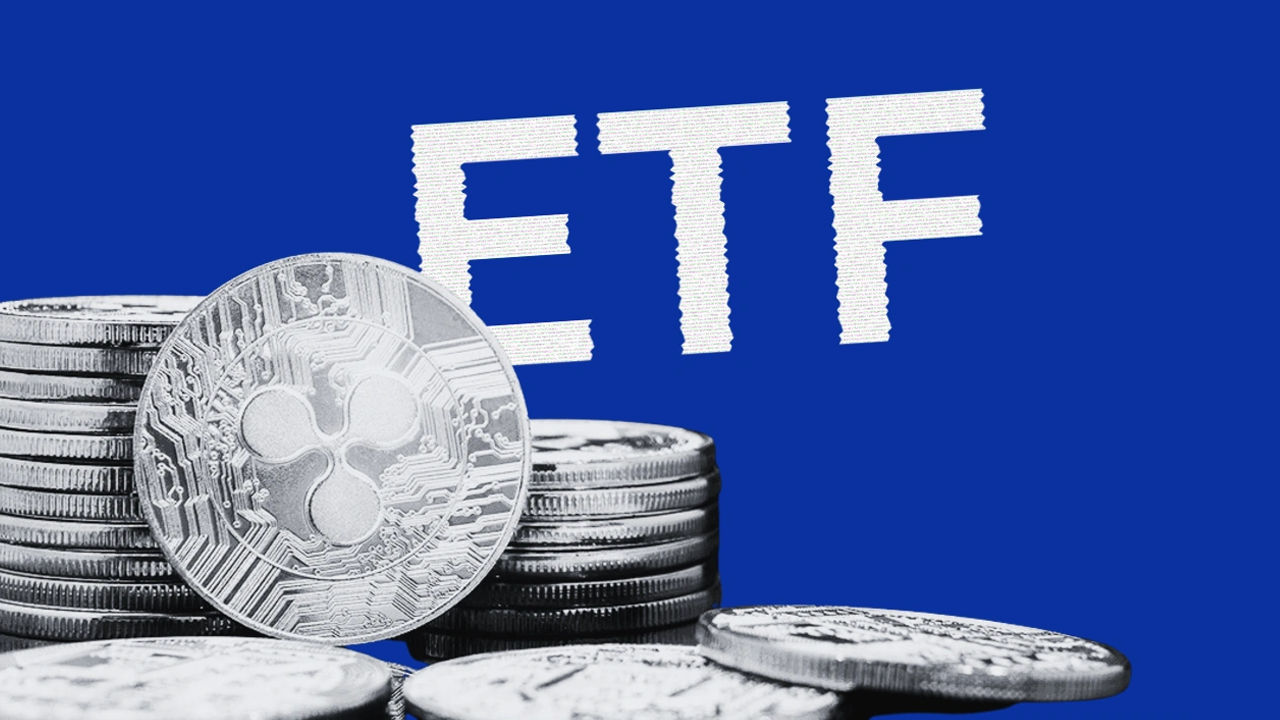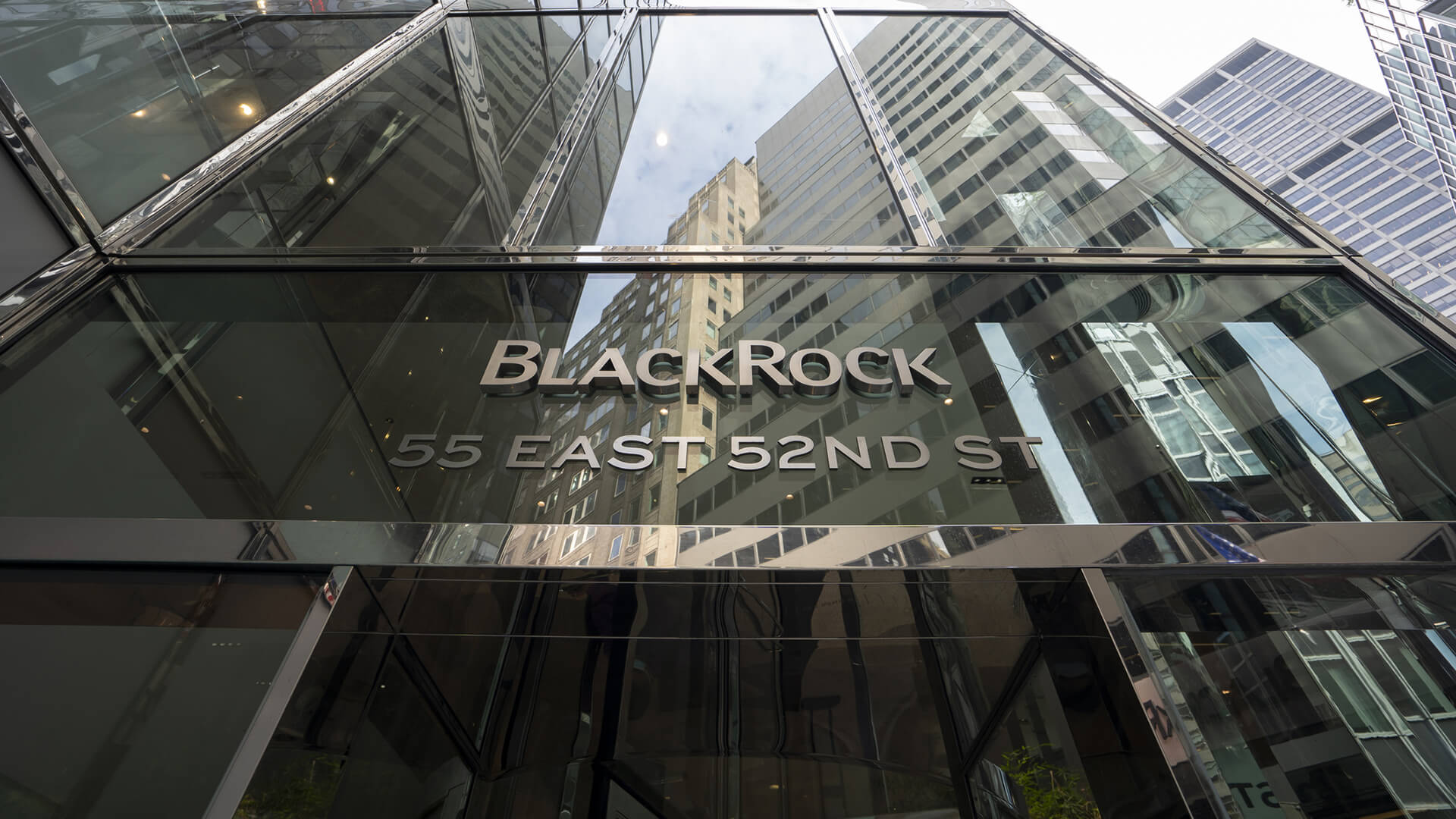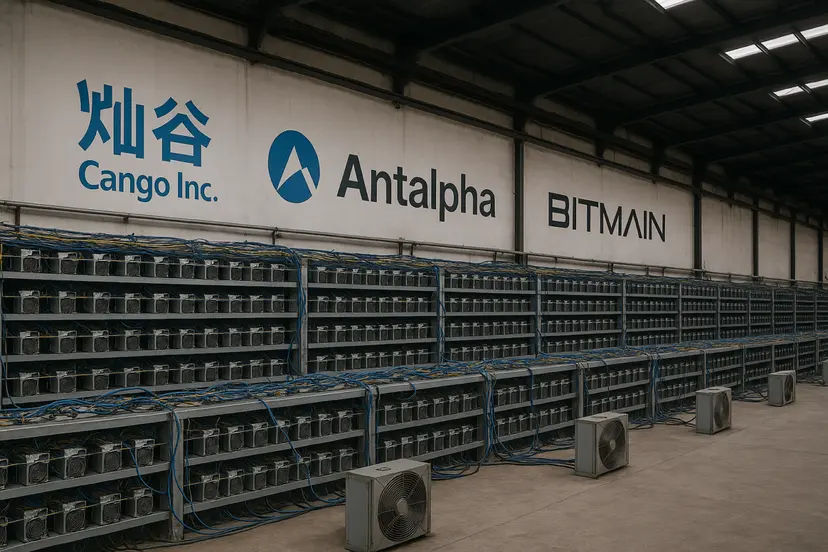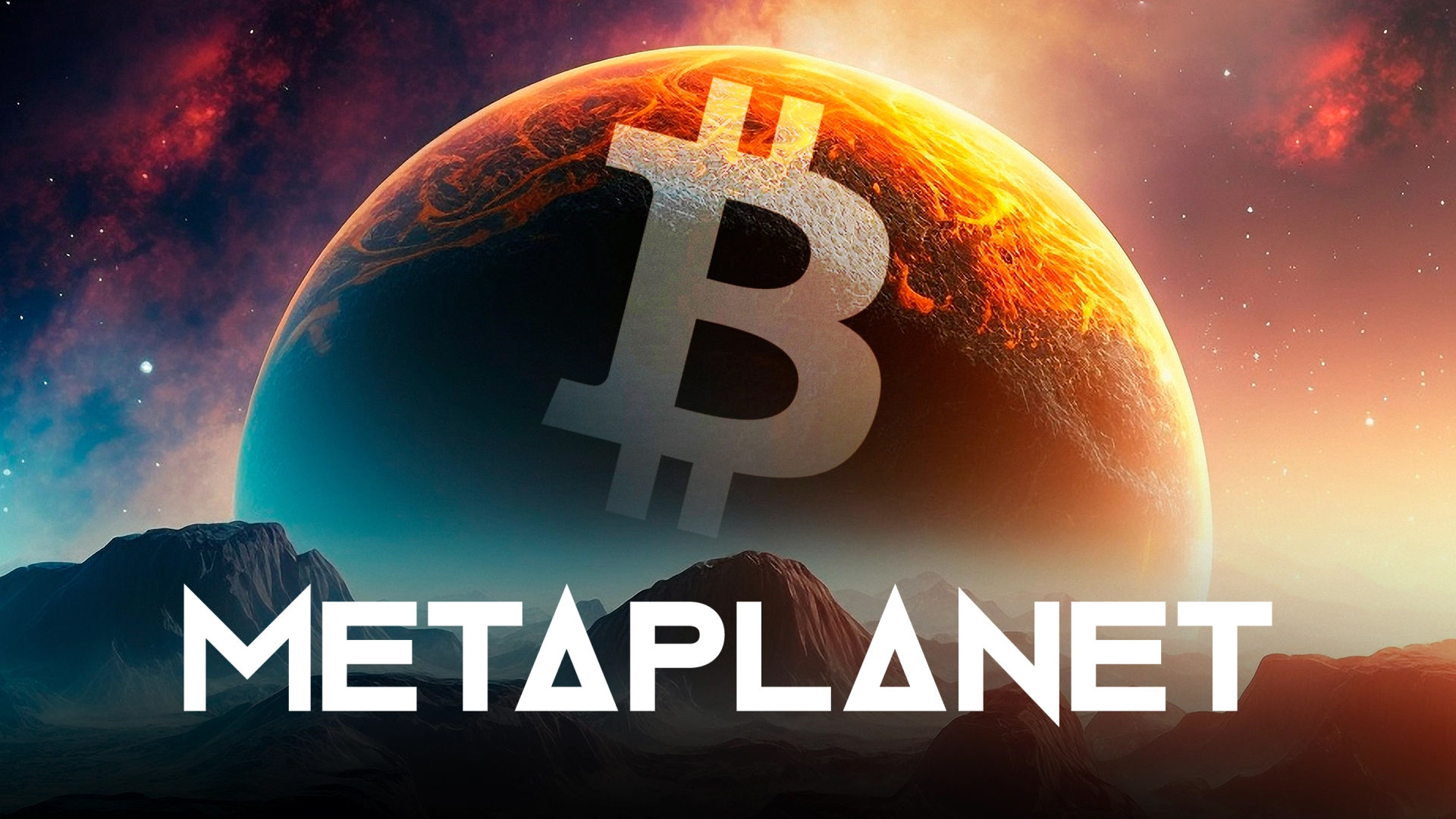Blog

Teucrium ETFs launches a leveraged XRP ETF
Apr-8-2025
Wall Street asset manager Teucrium Investment Advisors is launching a leveraged exchange-traded fund that tracks XRP, the crypto tied to Ripple Labs and the center of a years-long battle with U.S. regulators.
The new fund, named the Teucrium 2x Long Daily XRP ETF, is designed to return twice the daily performance of XRP and will begin trading Tuesday under the ticker XXRP, based on details listed on Teucrium’s own site.
The company says this will be the first ETF in the U.S. to offer leveraged exposure to XRP, the fourth-largest crypto by market cap, currently valued at about $111 billion. The product comes with a 1.85% expense ratio.
Teucrium opens the fund after Ripple’s legal case gets dropped
Teucrium’s ETF filing confirms the company may eventually add XRP futures or other financial products tied to XRP, if the firm finds it appropriate. At the moment, there are no XRP futures actively trading on any major U.S. commodities exchange.
The launch comes just weeks after the U.S. Securities and Exchange Commission dropped its case against Ripple Labs, the company behind the creation of XRP.
The legal action had dragged on for years before being abandoned during the current Donald Trump administration, which has pulled back on a number of crypto enforcement efforts since returning to the White House. These rollbacks have included cases against Coinbase and Binance, which were both tossed in recent months.
Brad Garlinghouse, Ripple’s Chief Executive Officer, said during a Bloomberg TV interview last month that the dropped lawsuit “provides a lot of certainty for Ripple.” Despite that, Ripple and the SEC remain locked in other ongoing litigation.
Teucrium
Crypto markets as a whole have taken a hit since Trump’s election victory, with many of the gains made during the bull market now wiped out. Traders point to fallout from Trump’s tariff-heavy policies, which triggered a wave of sell-offs across the crypto space.
Sal Gilbertie, Teucrium’s founder and CEO, said during an interview that the current price dip made it a good moment to launch a new product. “What better time to launch a product than when prices are low?” he said. Gilbertie also claimed there has been strong investor interest in XRP, and he believes the leveraged angle will drive even more interest. “You can’t really time it. You just launch when you launch.”
Read more

BlackRock Buys More Bitcoin as Nasdaq Slides, Strengthens Crypto Bet
Apr-7-2025
The BlackRock IBIT ETF acquired $25 million worth of Bitcoin at a time when Nasdaq continued its run of consecutive losses because institutions remain supportive of cryptocurrency markets.
Bitcoin maintained a 12 percent decline but delivered better results than the Nasdaq 100 which sank above 16 percent during the current year.
BlackRock's support for Bitcoin's long-term value is evident through the 78 percent increase in IBIT since its launch despite market fluctuations.
BlackRock kept increasing its Bitcoin investment by adding $25 million worth of Bitcoin to their spot ETF known as IBIT. Blockchain analysis company Arkham reports that BlackRock made its BTC buy at the time when Bitcoin reached a value near $83,300 and marked a 1 percent market rise on Friday. The Nasdaq 100 index showed a second day in a row of decreasing value.
Since the start of this year the Nasdaq 100 index has shown more than 16 percent decrease in its value. Bitcoin has experienced a minor 12 percent price decrease since the beginning of the year while maintaining stronger performance versus the tech-heavy index throughout multiple months. The repeated Bitcoin acquisitions by BlackRock throughout an unpredictable equity market demonstrate how institutions are increasingly adopting these assets for their investment portfolios.
Institutional Strategy Reflects Broader Conviction
BlackRock's strategy shows alignment because it continues to develop digital assets investments. Service provider Larry Fink voiced his apprehensions about the dollar's future position in the world economy earlier this year. Fink mentioned national debt and geopolitical tensions together with rising national debt as major challenges, which he mentioned in his holiday message to shareholders. Large investors throughout the market increasingly regard Bitcoin as an investment that will maintain its value over long periods.
Investors continue to dispute whether Bitcoin qualifies as a safe asset while the currency demonstrates stability in its recent trading values. Throughout history, Bitcoin demonstrated a substantial connection with high-risk financial instruments, particularly stock investments. The Bloomberg ETF analyst Eric Balchunas explains that Bitcoin functions best as an inflation shield against monetary policy changes. He defined it as dangerous due to market volatility and contrary to classic safe haven instruments.
The IBIT spot ETF managed by BlackRock has reached an impressive 78 percent rise after its debut twelve months ago and this tracks institutional investor acceptance. The continuous market condition uncertainty drives BlackRock and other firms to integrate Bitcoin as a valuable asset within diverse investment portfolios. Institutional backing for digital assets has progressed past limited speculative activities into a long-term sector with genuine interest.
Read more

Cango Exits Auto Business in $352M Deal to Mine Bitcoin for Bitmain’s Antalpha
Apr-4-2025
Cango is moving a step closer to becoming a Bitcoin mining proxy for Bitmain by agreeing to divest its Chinese auto-financing business for $352 million to a firm linked to Bitmain’s affiliate, Antalpha.
In a press release, Cango announced that it has entered into a definitive agreement with Ursalpha Digital Limited—a buyer introduced by Enduring Wealth Capital Limited (EWCL)—to sell its operations in China as part of a full pivot into Bitcoin mining.
Last month, Cango received a letter of intent from EWCL, which offered to take control of Cango’s mining business and assist in finding a buyer for its legacy auto-financing division. As previously reported, EWCL is tied to Antalpha, which is owned by Antpool and ultimately controlled by Bitmain Chairman Micree Zhan.
While Cango noted in Thursday’s release that Ursalpha Digital is registered in the British Virgin Islands, Hong Kong corporate records show that Ursalpha Digital and Antalpha Digital Limited share the same corporate address and founding director—Chiu Chang-Wei, a Taiwanese national who also serves as a director of Antalpha’s Singapore entity.
According to Cango, the deal includes an upfront payment of $210.6 million from Ursalpha, with additional installments contingent on meeting tax obligations and reducing credit risk exposure of the divested entities.
Effectively, Bitmain could be bringing its proprietary Bitcoin mining assets into the public market by first selling 32 EH/s of on-rack hashrate to Cango, then using its Antalpha affiliate to orchestrate a two-pronged takeover: one entity acquiring Cango’s mining business and another acquiring its original auto-financing arm.
Cango mined 530 BTC in March and held 2,475 BTC at the month’s end. That production equates to a realized hashrate of 29.13 EH/s, placing Cango among the top five publicly traded Bitcoin mining companies.
Read more

Bitcoin ETF Investments Soar Amid Market Changes
Apr-3-2025
Recent developments in the U.S. markets have led to a remarkable increase in Bitcoin ETF investments, despite the largely overlooked effects of tariffs imposed by the Trump administration. Market participants capitalized on lower price points, leading to a substantial influx of $220 million in net investments, effectively countering the recent sell-off trends.
What Sparked the Surge in Bitcoin ETF Investments?
Net investments in Bitcoin ETFs rebounded impressively by Wednesday, April 2, amounting to $220 million. Major institutional players such as Fidelity and Ark Invest were at the forefront, contributing $119 million and $130 million, respectively. Conversely, the iShares Bitcoin Trust, under BlackRock’s management, faced withdrawals of $116 million.
Why Are Institutions Increasing Their Bitcoin Holdings?
Interest from institutional players in Bitcoin is seeing a revival after a period of market instability. Recent reports indicate that the total Bitcoin reserves among 75 leading publicly traded companies in the U.S. have surged to 696,456. In the past week, eight companies increased their holdings by a cumulative total of 26,303 Bitcoins, reflecting a renewed confidence in Bitcoin’s future value.
The cryptocurrency market experienced heightened volatility following Trump’s tariff announcements. Bitcoin’s value dipped from $88,000 to $81,000, with daily trading volume soaring by 85% to reach $54 billion. As of now, Bitcoin is trading at $83,394, with a market capitalization estimated at $1.65 trillion.
Amid these fluctuations, market analysts have been evaluating potential price shifts, highlighting that movements on hourly charts will play a crucial role in determining future market trends.
Insights from recent institutional purchases illustrate the market’s current landscape and longer-term expectations. Participants emphasized the importance of closely watching technical benchmarks moving forward.
Market volatility may lead many to reconsider their investment strategies and risk tolerance. Key considerations include identifying optimal buying opportunities while remaining vigilant about potential risks associated with market fluctuations.
Read more

Japan’s Metaplanet adds 160 BTC, bringing total holdings to 4,206 BTC
Apr-2-2025
Japan’s Metaplanet has acquired an additional 160 Bitcoin, bringing its total holdings to 4,206 BTC.
According to the company’s Apr. 2 statement, the latest purchase was made at an average price of 12.49 million yen ($80,063) per Bitcoin (BTC), totaling 1.998 billion yen ($13.39 million). This purchase is a part of Metaplanet’s ongoing Bitcoin treasury strategy, which has played a major role in the company’s expansion.
Through the sale of cash-secured Bitcoin put options, Metaplanet revealed that it had purchased 696 BTC in Q1 2025. 50 BTC came from premiums, and 645.74 BTC came from option exercises. The total cost for these acquisitions was ¥10.152 billion ($91.7 million). Metaplanet continues to actively raise capital from investors to fund more purchases.
On Mar. 31, the company raised 2 billion yen ($13.22 million) in its 10th Series of Ordinary Bonds, all of which will go toward purchasing additional Bitcoin. Since adopting a Bitcoin-focused strategy, Metaplanet’s stock has risen by more than 3,000%, demonstrating strong investor interest.
The company has stated that it is on track to reach its goal of earning ¥3.0 billion (~$27.5 million) from its Bitcoin program this year. This will help meet the company’s total revenue target of ¥3.4 billion (~$31.3 million) for the entire year.
You might also like: Strategy buys almost $2b more Bitcoin, now holds over 528k BTC
The primary key perfomance indicator that the company uses to assess the success of its Bitcoin acquisition strategy is its BTC Yield, which measures the percentage change in total Bitcoin holdings compared to fully diluted shares. The Bitcoin yield rose to 309% in Q4 2024 and 95% in Q1 2025.
Metaplanet’s long-term objective is to hold 21,000 BTC by 2026. Its aims to surpass 10,000 BTC by the end of 2025, establishing itself as Asia’s largest corporate holder of Bitcoin.
Read more






